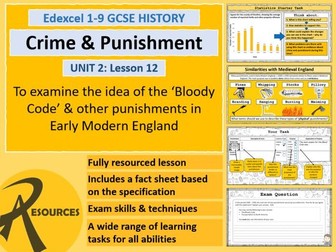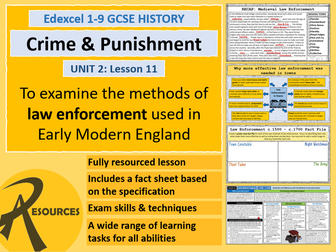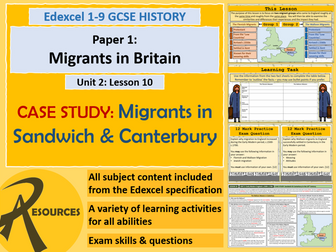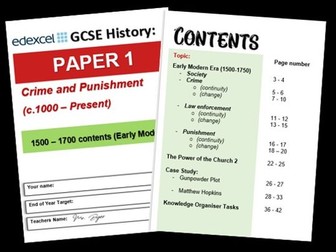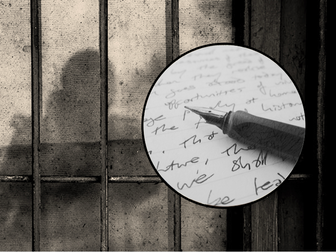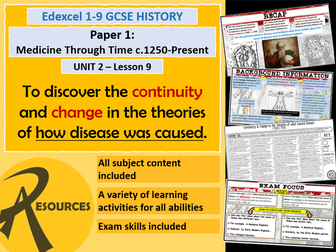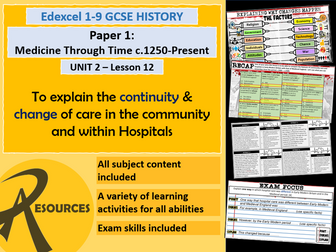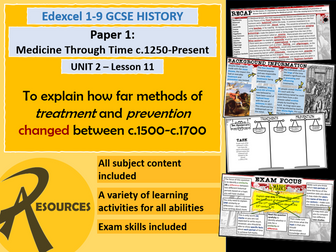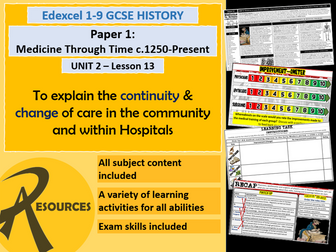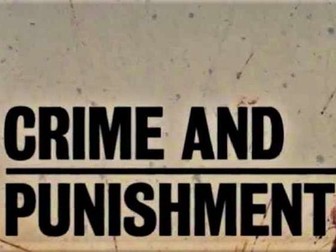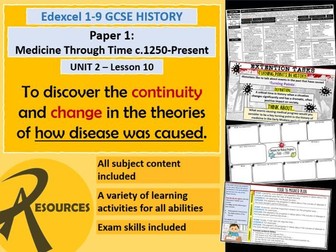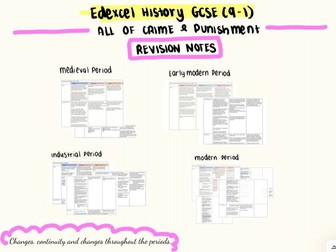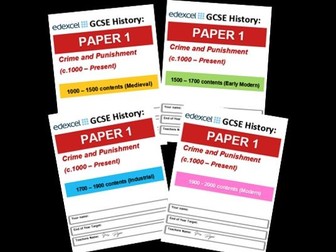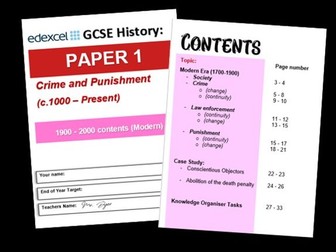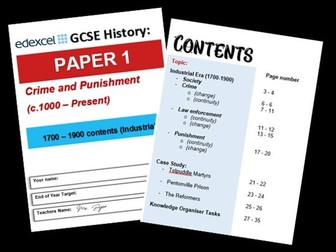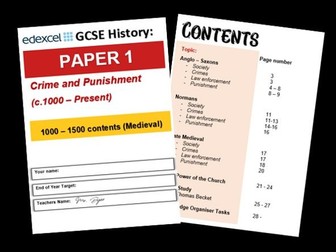
GCSE History Edexcel: Crime & Punishment: 1500-1700 Punishments (Lesson 12)
Slide 1: Title slide: To examine the Bloody Code and other punishments of Early Modern England
Slide 2: A recap quiz asking students to match a fact about Early Modern Law Enforecement methods to the matching role.
Slide 3: Answers revealed to the recap
Slide 4: Source analysis. A chart showing the decline in the crime rate between 1500-1700. Students asked to infer from this then question its usefulness.
Slide 5: Useful short clips covering the bloody code and punishments of this time.
Slide 6: An outline of the main purposes of punishments
Slide 7: Activity: students use the images to demonstrate their knowledge of Medieval punishments
Slide 8-9: Background information about the Bloody Code
Slide 10: Background information about prisons
Slide 11: Background information about Houses of Correction
Slide 12L Background information about transportation
Slide 13-14: Task sheet with instructions given
Slide 15: Challenge questions linked to a 16 mark question format
Slide 16: Lesson Fact Sheet
Slide 17: What causes change slide
Slide 18: A 4 mark question example
Slide 19: A 12 mark question example
Slide 20: A 16 mark example
2023 UPDATE INFO: To take into account copyright, all photographic and illustrative images have been attributed where appropriate and/or are all in the public domain. Clipart/vector images are all creativecommons.publicdomain.zero.1.0 which do not have to be attributed. If you have any issues regarding copyright please email me in the first instance.
